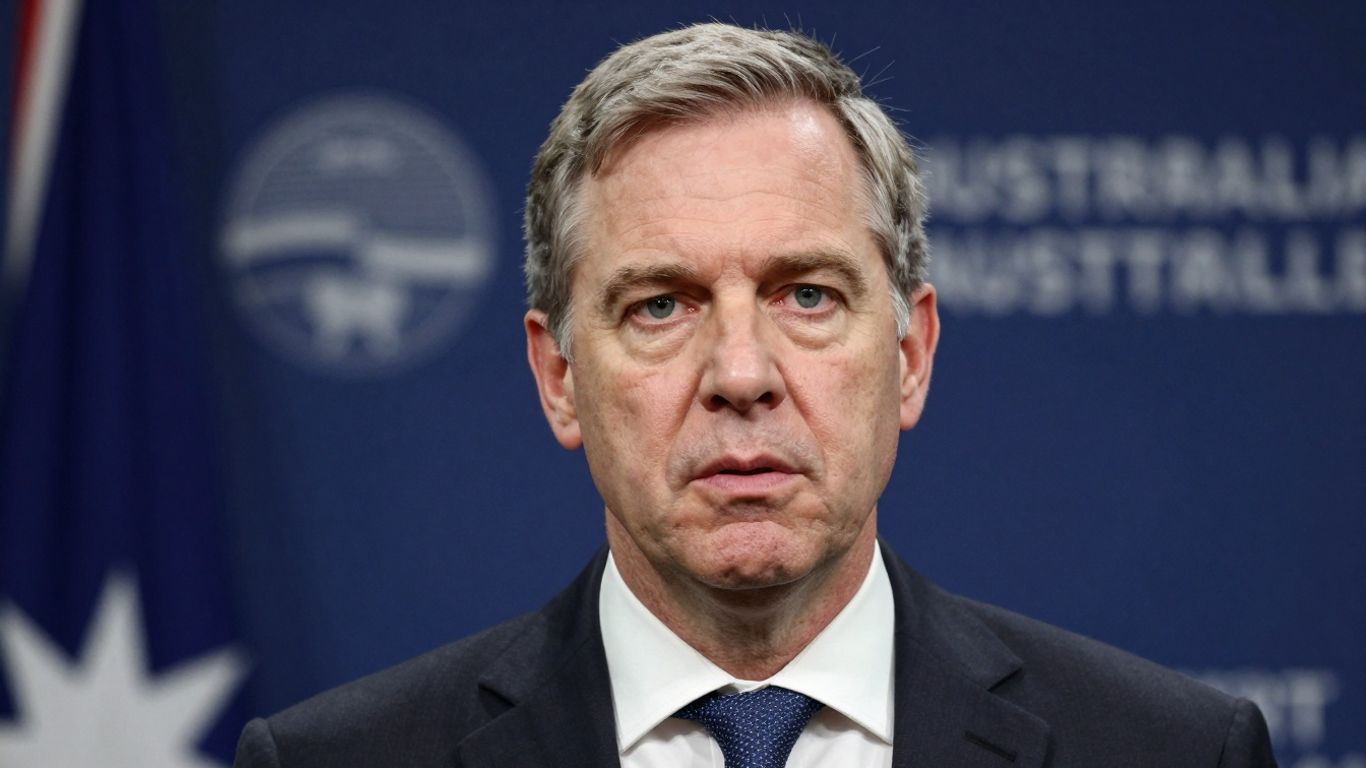Getting a handle on your money can feel like a big task, but it doesn’t have to be. Budgeting is really just about telling your money where to go, instead of wondering where it went. We’ll walk you through some simple steps to budgeting that’ll make you feel more in control and less stressed about your finances. Let’s get started on mastering your money, the easy way.
Key Takeaways
- List all your income sources to get a clear picture of what’s coming in.
- Track every transaction to understand exactly where your money is going.
- Set clear money goals and create a plan to achieve them through budgeting.
- A zero-based budget, where every dollar has a job, is a solid starting point.
- Using a budgeting app can make tracking spending and staying on track much simpler.
How To Create A Budget
Getting a handle on your finances starts with a solid budget. It might sound a bit daunting, but honestly, it’s just a plan for your money. Think of it like a roadmap for your dollars, showing you where your cash is coming from and where it’s going. This helps you make sure you’ve got enough for the important stuff and maybe even a bit left over for fun things.
Before you even start jotting things down, it’s a good idea to have your bank statements handy, maybe from the last couple of months. It makes things a lot easier when you can actually see the numbers you’re working with. It’s not about judging your past spending, just understanding it.
List Your Income
First things first, you need to know exactly how much money you’ve got coming in. This is your income. It’s not just your regular pay cheque, either. Think about any extra cash you might get – maybe from a side gig, selling something online, or even a birthday gift. It all counts. You want to list out every single bit of money you expect to receive in a month. For couples, make sure you’re both listing your incomes. It’s best to create separate lines for each pay period and any other income sources.
Track Your Transactions
Once you know what’s coming in, you need to figure out where it’s all going. This means tracking every single transaction. Yep, every coffee, every grocery run, every bill payment. It sounds tedious, but it’s super important. You can do this by looking at your bank statements, credit card statements, or using a budgeting app. The goal here is to get a clear picture of your spending habits. Don’t worry if you see some surprises; that’s what this step is for. Understanding where your money is actually going is the first big step to controlling it. You can use a simple spreadsheet or even just a notebook to keep tabs on things. For a more detailed look at how to do this, check out our guide on how to track transactions.
How To Budget For Your Money Goals

Setting goals for your money is a big part of getting your finances sorted. Without a clear target, it’s easy to just let your money drift away, you know? A budget is basically your roadmap for where you want your money to go. Whether you’re trying to pay off that pesky credit card debt, save up for a holiday to Queensland, or build a safety net for unexpected stuff, you need to actually budget for it. It’s like telling your money, ‘Hey, I want you to go here!’
Identify Your Goal
First things first, figure out what you’re aiming for. If you’re not sure where to start, maybe look into the 7 Baby Steps – it’s a pretty solid plan for getting out of debt and building up some real wealth. A good tip here is to focus on one major goal at a time, especially if it’s debt or building an emergency fund. Once you’ve got that sorted and feel a bit more secure, you’ll have more breathing room to tackle other things like investing or saving for the kids’ school fees.
Create A Plan Of Attack
Once you know your goal, you need a strategy. Think about how much you need to save or pay off each month. Break it down into smaller, manageable chunks. For example, if you want to save $2000 for a holiday in six months, that’s about $333 a month. You’d then look at your budget and see where you can find that $333. Maybe it’s cutting back on eating out, cancelling a subscription you don’t really use, or finding a way to earn a bit extra on the side. It’s all about making your big goals fit into your regular budget, just like you do with your bills.
Setting clear financial goals and creating a budget to meet them is key to taking control of your money. It helps you see where your money is going and make conscious decisions about your spending.
The Simplest Way To Budget

Sometimes, the idea of budgeting can feel like a massive undertaking, right? Like you need to be some kind of financial wizard. But honestly, it doesn’t have to be that complicated. There are ways to get a handle on your money without needing a degree in accounting.
Make Your First Budget In Minutes
Forget spending hours poring over spreadsheets. You can actually get a basic budget set up pretty quickly. The key is to focus on the essentials first. Think about your regular income and your must-pay bills. Once you’ve got those down, you can start slotting in other spending. It’s about making a plan, not a perfect, rigid document that you’ll never stick to. The goal is progress, not perfection, especially when you’re starting out. Remember, it usually takes a few months to get comfortable with budgeting, so don’t stress if your first few attempts aren’t flawless.
Track Your Monthly Spending With Ease
Knowing where your money is actually going is half the battle. You might think you know, but when you see it all laid out, it can be a real eye-opener. A simple way to do this is to jot down every expense, no matter how small. You could use a notebook, a spreadsheet, or even a budgeting app. The important thing is consistency. Tracking your spending helps you spot areas where you might be overspending without even realising it. For example, those daily coffees or impulse buys can add up surprisingly fast. Once you see it, you can make conscious decisions about where you want your money to go instead.
Budgeting is about making your money work for you, not the other way around. It’s about giving every dollar a job so you know exactly where it’s going and can reach your financial goals faster.
16 Budgeting Tips To Manage Your Money Better
Budgeting can feel a bit daunting when you’re starting out, can’t it? It might even seem a bit much at first. But honestly, budgeting is for everyone. You just need a bit of time to get the hang of it. Whether you’re new to managing your money or you’re ready to get serious, here are 16 tips to make it easier. You’ll feel more in control and start seeing real progress with your finances.
Create a zero-based budget before the month begins.
This is probably the most important tip. Before the month even starts, you need to have a plan. This means giving every single dollar a job. You know exactly where your money is going, which helps you avoid overspending. It’s all about being intentional with your cash. If you’re trying to [create a budget], this is the place to start.
Add a miscellaneous budget line.
Here’s a simple tip that can really save your budget: add a miscellaneous line item! I always set aside a small amount for those little things that pop up during the month, because, let’s face it, something always does. This way, when unexpected expenses hit, you’re prepared. You won’t have to take money from your grocery fund or another category. If you notice the same type of expense appearing in that line repeatedly, it’s time to give it its own permanent spot in your budget.
Stop relying on credit cards.
If you genuinely want to get a handle on your money, credit cards are often the biggest hurdle. They make it easy to spend money you don’t actually have, which can lead to a cycle of debt that’s hard to break. Using cash or a debit card for your everyday spending can make you much more aware of your limits. It forces you to live within your means, which is the core of good budgeting.
Small changes can lead to big results over time. Remember, budgeting isn’t about restriction; it’s about giving your money purpose and direction so you can reach your goals faster. You’re always in control and can adjust as needed.
Mastering Your Money: Simple Steps To Budgeting Like A Pro
So, you’ve got the basics down, you know how to list your income and track where your money’s actually going. That’s a massive step, honestly. But how do you go from just tracking to really mastering your money? It’s all about understanding yourself and using the right tools.
Understand Your Spending Habits
This is where the rubber meets the road. Looking at your bank statements isn’t just about seeing numbers; it’s about seeing your life reflected in them. Are you spending a lot on coffees out? Maybe those impulse buys online are adding up more than you thought. Getting a clear picture of where your cash goes is the first real step to taking control. It might be a bit confronting at first, seeing it all laid out, but it’s necessary. Think of it like this: you can’t fix a leaky tap if you don’t know where the leak is coming from, right? It’s the same with your finances. Once you see the patterns, you can start making conscious choices to align your spending with what you actually want your money to do for you. This is a key part of practical budgeting tips.
Get A Budgeting App That Works For You
Look, nobody wants to be glued to a spreadsheet all day, every day. That’s where technology comes in handy. There are heaps of budgeting apps out there now, and finding one that clicks with you can make all the difference. Some people like apps that automatically categorise your spending, others prefer ones where you manually input everything. It really depends on your style. The main thing is that it helps you see your budget clearly and makes tracking your progress less of a chore. A good app can help you stick to your budgeting plan and see how you’re tracking towards your goals without a heap of fuss. It’s about making the process as smooth as possible so you’re more likely to stick with it.
Keep at It!
So, there you have it. Budgeting might seem a bit daunting at first, and yeah, your first few tries might not be perfect. That’s totally normal, honestly. It takes a bit of time, maybe three or four months, to really get the hang of it. Just remember to be kind to yourself, learn from any slip-ups, and keep plugging away. It’s all about making progress, not being perfect. You’re building good habits, and that’s what really counts. Stick with it, and you’ll be managing your money like a pro before you know it.
Frequently Asked Questions
What counts as income when I’m making a budget?
Think of your income as all the money you’re expecting to get in a month. This includes your regular pay from your job, any extra cash from a side gig, or anything else that adds to your bank account. Listing it all out helps you see the big picture.
What does it mean to track my transactions?
Tracking your transactions means keeping a record of every bit of money that comes in or goes out. It’s like keeping a diary for your spending. This helps you see exactly where your money is going, so you can make smarter choices.
Why is it important to have money goals when budgeting?
Setting money goals is like having a destination for your cash. Whether it’s saving for a new bike, paying off a bill, or going on a holiday, a budget helps you plan how to get there. You need to know what you’re aiming for!
What’s a ‘zero-based budget’ and how does it work?
A zero-based budget means every dollar you earn has a job. You subtract your expenses from your income, and the end result should be zero. This way, you’re intentionally telling your money where to go, rather than just letting it disappear.
Should I add a ‘miscellaneous’ line to my budget?
It’s a good idea to have a ‘miscellaneous’ or ‘just in case’ category in your budget. This is for those little unexpected things that pop up, like a surprise coffee or a small repair. It stops you from having to take money from other important areas.
How can a budgeting app help me manage my money better?
Using a budgeting app can make things much easier. These apps help you set up your budget, track your spending in real-time, and see where your money is going at a glance. It’s like having a helpful assistant for your finances!





